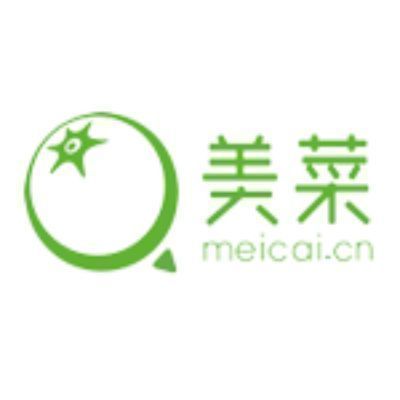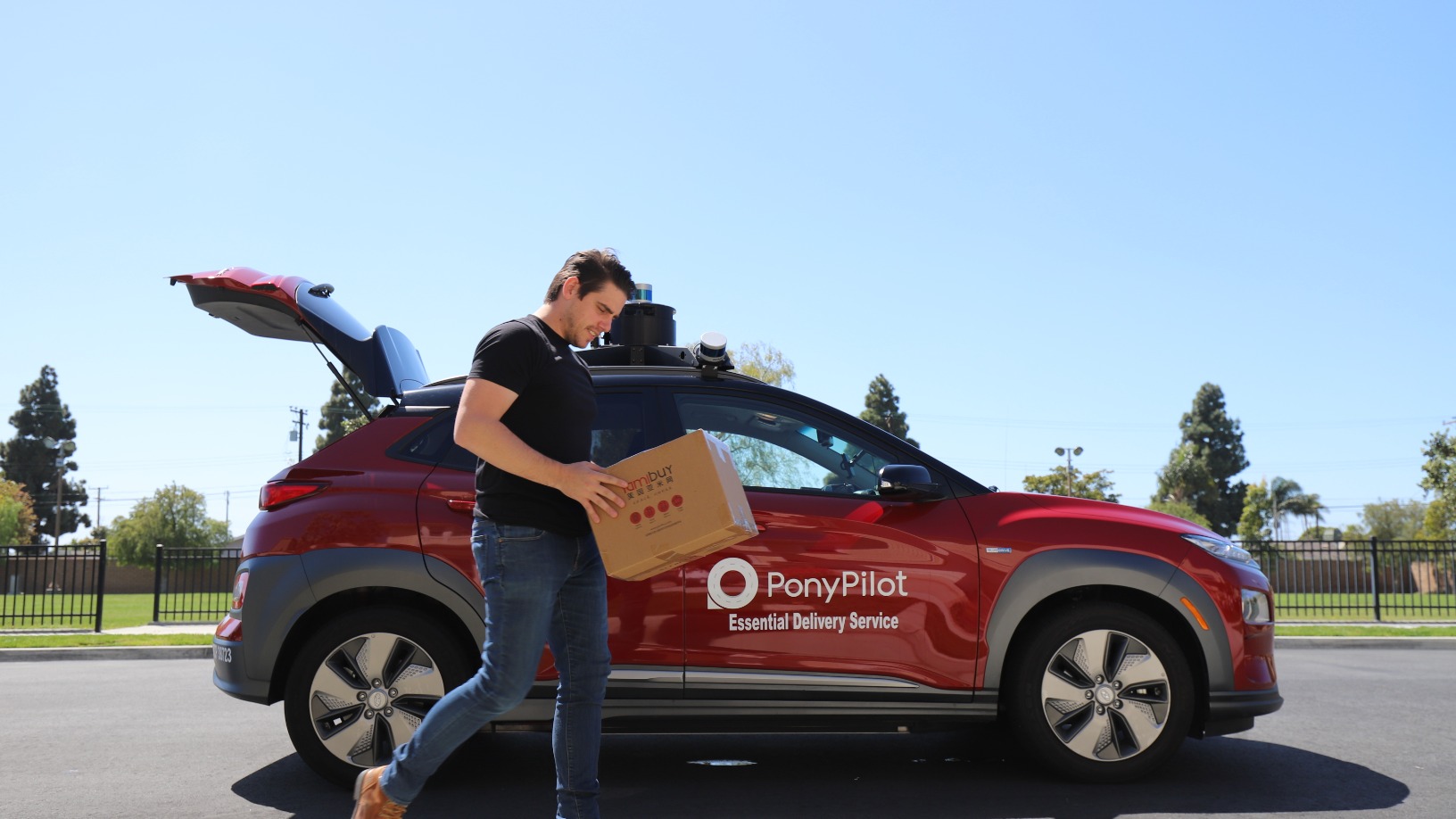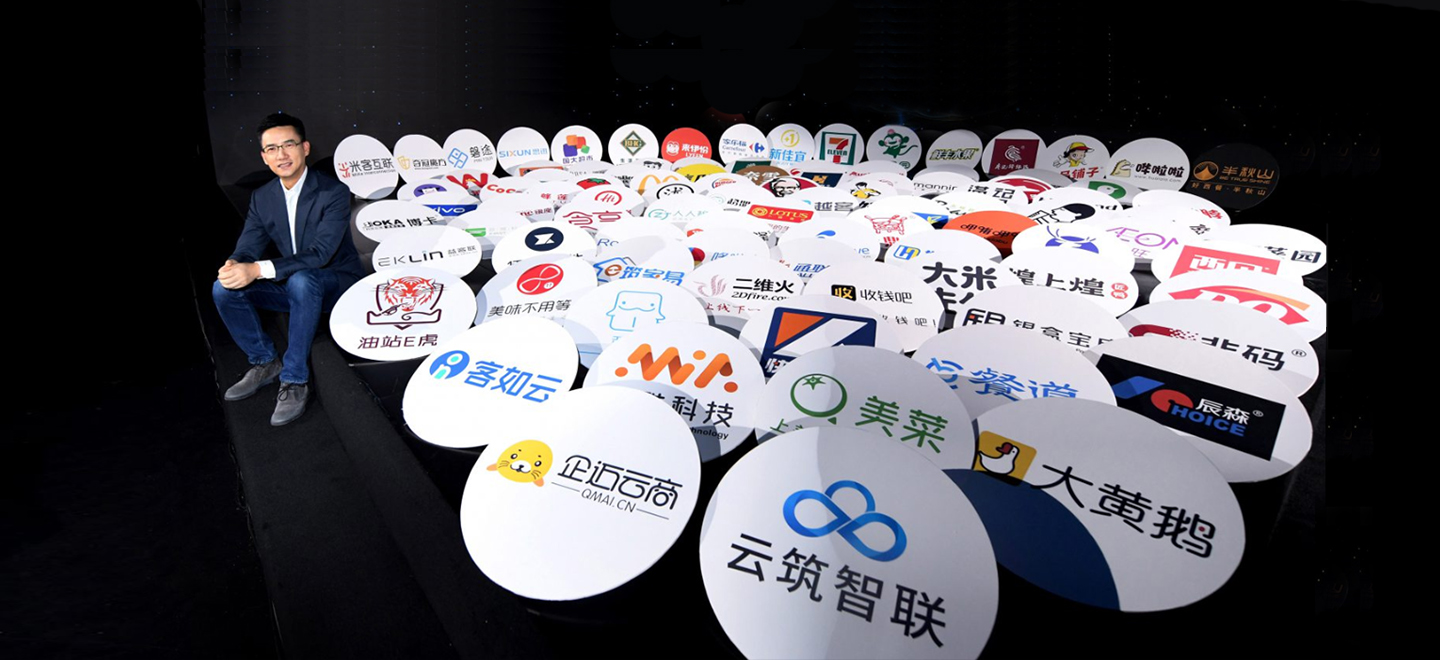Around 460,000 businesses in China went bust during the first quarter of 2020 as the coronavirus outbreak and ensuing lockdown plunged the country's economy into its first contraction since 1976. However, many startups have also adapted to the challenging conditions and offline business closures by tweaking their products, services and even business models.
While some of the adaptations were initially intended to help local residents or frontline healthcare workers cope with the pandemic, startups have discovered other promising business opportunities that not only helped them stay afloat during the crisis, but also present them with opportunities to thrive afterward.
Guangzhou- and Fremont-based self-driving startup Pony.ai is a good example. As online shopping spiked because of the stay-at-home orders in the US, the company teamed up with the e-commerce platform Yamibuy to use its robotaxi fleet in Irvine, California to perform contactless delivery of goods bought on Yamibuy to local customers from April 20.
The pivot is also likely to help the startup generate some revenue, as its products and services had not previously been in commercial use. Pony.ai is in talks with the local transport authority to get a license that will allow it to charge a delivery fee for its service.
Neil Shen, Founding and Managing Partner of Sequoia Capital China, once said that businesses should always have a sense of crisis, but the key is sticking to core competencies and making changes in an ever-changing market. This is exactly what Pony.ai and the following startups have done amid the outbreak.
Rokid: Smart glasses for fever detection
Hangzhou-based startup Rokid has previously been known for its AR goggles used in manufacturing and gaming. Amid the current pandemic, it has found a new opportunity for growth: smart glasses that could help spot potential Covid-19 patients by measuring temperatures on the move.
Rokid T1 thermal smart glasses are equipped with an infrared sensor that enables wearers to detect the temperatures of up to 200 people from as far as three meters way, within two minutes, and alert the wearer if someone has a fever. The glasses also support hands-free voice controls. Their retail price isn't yet available.
As floods of people return to offices or rush to parks after lockdowns are lifted, temperature checks have become a headache for property managers and security guards. Rokid's glasses will be able to replace fixed thermometer stands and make checks much easier.
“With more new products coming out, especially these glasses, we think we can use them to conduct contactless temperature measurement," said Jin Keli, President of Greentown Property Management. "They are very efficient when faced with a crowd of people.”
Rokid Vice-President Xiang Wenjie says demand rose for the company’s T1 glasses, developed in only two weeks, after it sold roughly 1,000 pairs to governments, industrial parks and schools in China. Now, Rokid is in talks with a slew of interested US companies. California based e-commerce company Weee! is considering deploying the T1 glasses to monitor the temperatures of its warehouse employees.
Rokid is not the only Chinese tech startup that has customized specific products to help fight the coronavirus pandemic. SenseTime, another AI startup specializing in face recognition, has also launched thermal imaging systems that have been installed in railway stations across China to screen potential Covid-19 patients.

© Rokid
Megvii: Using AI to help sell make-up
More consumers have turned to e-commerce during lockdowns. Catering to the trend, Beijing-based Megvii, an AI startup focused on facial recognition, launched its AI-powered virtual make-up system in April to help sell cosmetics at a time when beauty brands and retailers have seen sales drop. In January and February, cosmetics sales stood at RMB 38.7bn – 14.1% down on the previous year.
The system, named FaceStyle, accurately captures and replicates consumers’ facial features and then demonstrates how different make-up looks on their faces. It could be integrated with apps or with WeChat mini-programs, allowing consumers to try on cosmetic items in a virtual way with less risk of physical contact. Haitunjia, a membership-based e-retailer with over 50m registered members in China, has already used FaceStyle on its online platform.
The system has been also deployed at brick-and-mortar stores, such as cosmetics retailers Unifon and Noisy Beauty, which have dozens of outlets across China. Besides showing makeup effects, FaceStyle is able to analyse consumers’ skin tone, wrinkles and spots to provide personalized skincare recommendations.
Megvii has long intended to commercialize its AI technologies in traditional industries such as cosmetics, and Covid-19 has presented an unexpected opportunity. “FaceStyle marks an opportunity for Megvii to accelerate the progress,” said Zhao Liwei, Senior Vice-President of Megvii’s cloud services business.
In the future, according to Zhao, Megvii will continue to use its AI development platform Face++ to come up with customized solutions for more industries.
Meicai: Shift to serving end consumers
Before the Covid-19 outbreak, Meicai was known as a B2B platform connecting vegetable farmers with restaurants. However, since restaurants stopped running as part of the lockdown to curb the coronavirus spread, demand for Meicai's services disappeared or fell sharply at best. The Beijing-based startup swiftly decided to shift its focus to end-consumers.
In late January, Meicai opened its restaurant-oriented system to individual users, allowing them to log onto its app or WeChat mini-program to place orders, initially in China's coronavirus epicenter, Wuhan. By January 29, Meicai had begun to serve end consumers in over 30 cities, including Beijing, Shanghai and Shenzhen, using its procurement, logistics and delivery systems to provide them with vegetables at reasonable prices during the lockdowns.
To reach more end consumers, Meicai launched its mini-program on February 9 on Alipay, Alibaba's online payment platform, which has 1.2bn users worldwide. Within just one week, it gained over 800,000 users in over 80 cities across the country and the repurchase rate reached 40%.
Whether its business model is B2B or B2C, “Mecai is a supply chain solution provider,” its founder Liu Chuanjun has always stressed. Since its establishment in 2014, the startup has invested a total of RMB 2bn in building a reliable supply chain for fresh vegetables and other produce, serving more than 3m restaurants across over 200 cities as of August 2019. Although it's not clear whether Meicai will continue to serve end consumers after Covid-19, a strong supply chain is sure to give the startup more room to adapt to a fast-changing market.














